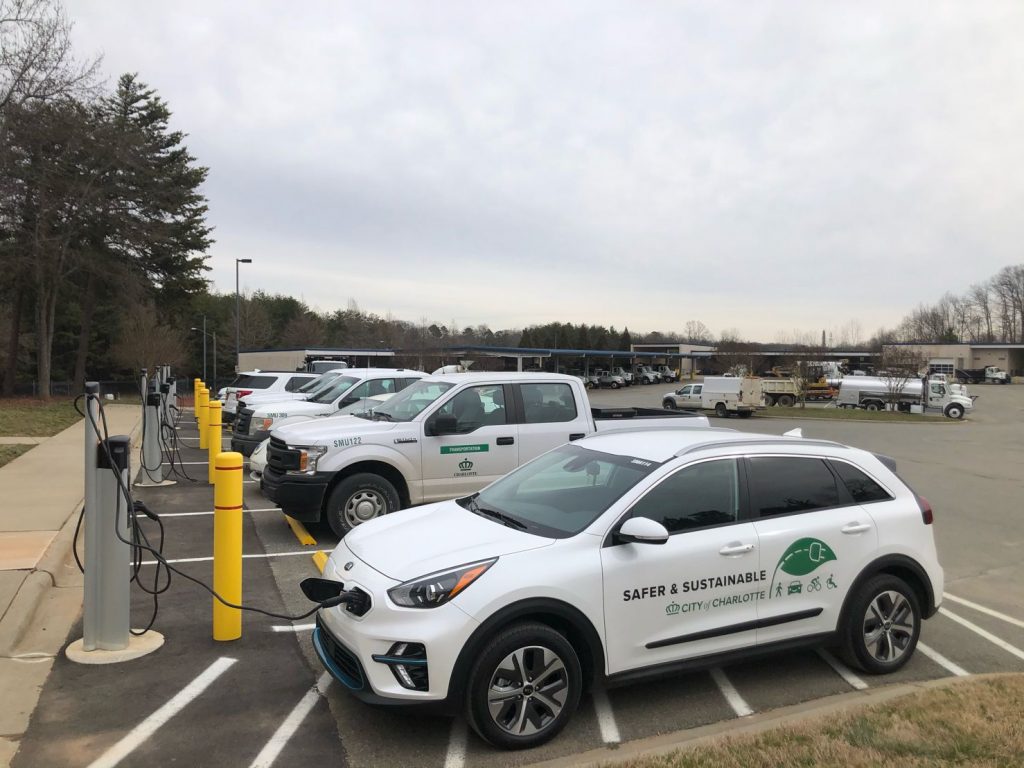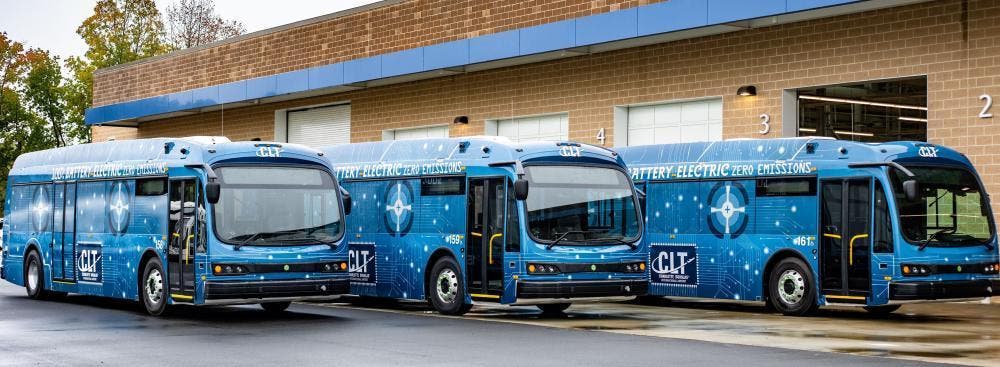The Ticking Clock: A race toward transportation electrification

By Ben Prochazka, Executive Director, Electrification Coalition
Bloomberg Philanthropies partners with The Electrification Coalition to provide tools and technical support to cities and states as they lead efforts to increase electric vehicle adoption across the U.S.
When you consider that most modern-day vehicles have a lifespan of 10-20 years, we’re in a sprint against the clock to electrify transportation in the United States and across the world. The transportation sector is the largest source of U.S. greenhouse gas emissions, in part because of successful efforts including Bloomberg Philanthropies’ Beyond Carbon that have worked to clean the power sector. Along with investments in public transit and complete streets, electric vehicles represent one of the best and fastest routes to a zero-emission and oil-free transportation future. So, we need a global transportation revolution of unprecedented speed and scale. To put this in personal terms, when my 3-year-old daughter is old enough to get her driver’s license, she and her friends will almost certainly be taking zero-emission driver’s education!
A full market shift can feel like an overwhelming prospect: There are more than 250 million cars, trucks, and buses on American roads today, and only about 1 percent of them currently plug-in. Electric vehicles (EVs) represented just 2.5 percent of U.S. light-duty vehicle sales in February of this year. Oil’s monopoly on U.S. transportation poses serious risks not only for the climate, but also air quality, national security, economic growth, and energy security. But we also have reason for optimism.
The Biden-Harris Administration has already set ambitious targets for the electrification of transportation. The president has set the wheels in motion to electrify the 645,000 vehicles in the federal fleet, and his recently announced infrastructure plan includes $174 billion to spur the EV market.
With help from efforts like America Is All In, the most expansive coalition of leaders ever assembled in support of climate action in the United States, local leaders, including states, cities, and businesses, are taking big steps to electrify transportation. On the private sector side, General Motors is planning to be carbon neutral by 2040 and to eliminate tailpipe emissions from all its new light-duty vehicles by 2035. Ford Motor Company will invest $22 billion into EVs through 2025. FedEx is planning for 100 percent of its parcel-delivery vehicle purchases to be electric by 2030. Nestle plans to achieve net-zero emissions by 2050, including through the electrification of its fleet.
Even with this new momentum from the federal government and the private sector, our country is still counting on cities and states to continue carrying out much of the work required to transform the way we move. Charging infrastructure planning and development, fleet electrification, EV-ready building codes, consumer education, and other efforts by cities and states will be essential to our eventual collective success.
The Electrification Coalition has been proud to partner with Bloomberg Philanthropies during the past several years to work with cities and states as they’ve led the charge on EV adoption. We have provided tools, technical support, and planning support to several American Cities Climate Challenge (ACCC) participants, including Los Angeles, Orlando, Boston, Albuquerque, Pittsburgh, the Twin Cities, and Charlotte, N.C., as they have forged ahead on electrification in a manner that ensures the benefits are equitably distributed among their residents. We also help lead the Climate Mayors EV Purchasing Collaborative, which leverages the combined purchasing power of more than 250 cities, counties, transit agencies, port authorities, and universities to drive down costs and accelerate the electrification of fleets.

We are working with Washington, D.C., another Climate Challenge participant, to develop a comprehensive electrification roadmap, which will lay out the path to the District’s goals of finalizing a school bus electrification plan this year; increasing the share of zero-emission light-duty vehicle registrations to 25 percent by 2030; and eliminating tailpipe emissions from transit buses and private fleets by 2045. We’re gathering public input and feedback at each stage of the plan’s development, working with a diverse coalition of trusted community organizations.
Stakeholders include faith groups, environmental advocates, neighborhood-level economic development groups, and environmental justice organizations. Recently, this equity-focused process created an opportunity for conversation among District officials and community advocates on the prioritization of a diesel bus depot in one of Washington’s most demographically diverse neighborhoods.
As part of our work to help cities and states accelerate EV adoption, and through the support of Bloomberg Philanthropies, we have recently developed several free tools and resources. These resources are publicly available and designed to save stakeholders time, money, and effort in the path toward electrification, including as they leverage any new federal resources that become available.
The Dashboard for Rapid Vehicle Electrification – or DRVE Tool – offers fleets a quick, free and easy way to gather customized insights on maximizing cost and emissions savings through electrification. This tool, road-tested by multiple ACCC cities, allows users to easily upload existing fleet data and immediately view a data-rich analysis of available EV models, emissions reductions, and cost savings.
The EV Policy Showroom offers a trove of data and policy information on EV adoption. The Showroom includes the State EV Policy Dashboard, a comprehensive nationwide database of state policies pertaining to transportation electrification. The Showroom’s EV Roadmap Roundup is a digital library of EV roadmaps from 17 states and three large cities. These planning documents outline cities’ and states’ goals and pathways forward to widespread EV adoption.
There has never been a more important time to push the policies and actions that will effect an electrified transportation future. The question isn’t if we electrify but when. Our early work in partnership with Bloomberg Philanthropies has created an incredible community of policymakers and advocates who are working tirelessly toward our shared vision. The foundation has been built, and now, with new ambition and opportunity, we can go even faster.